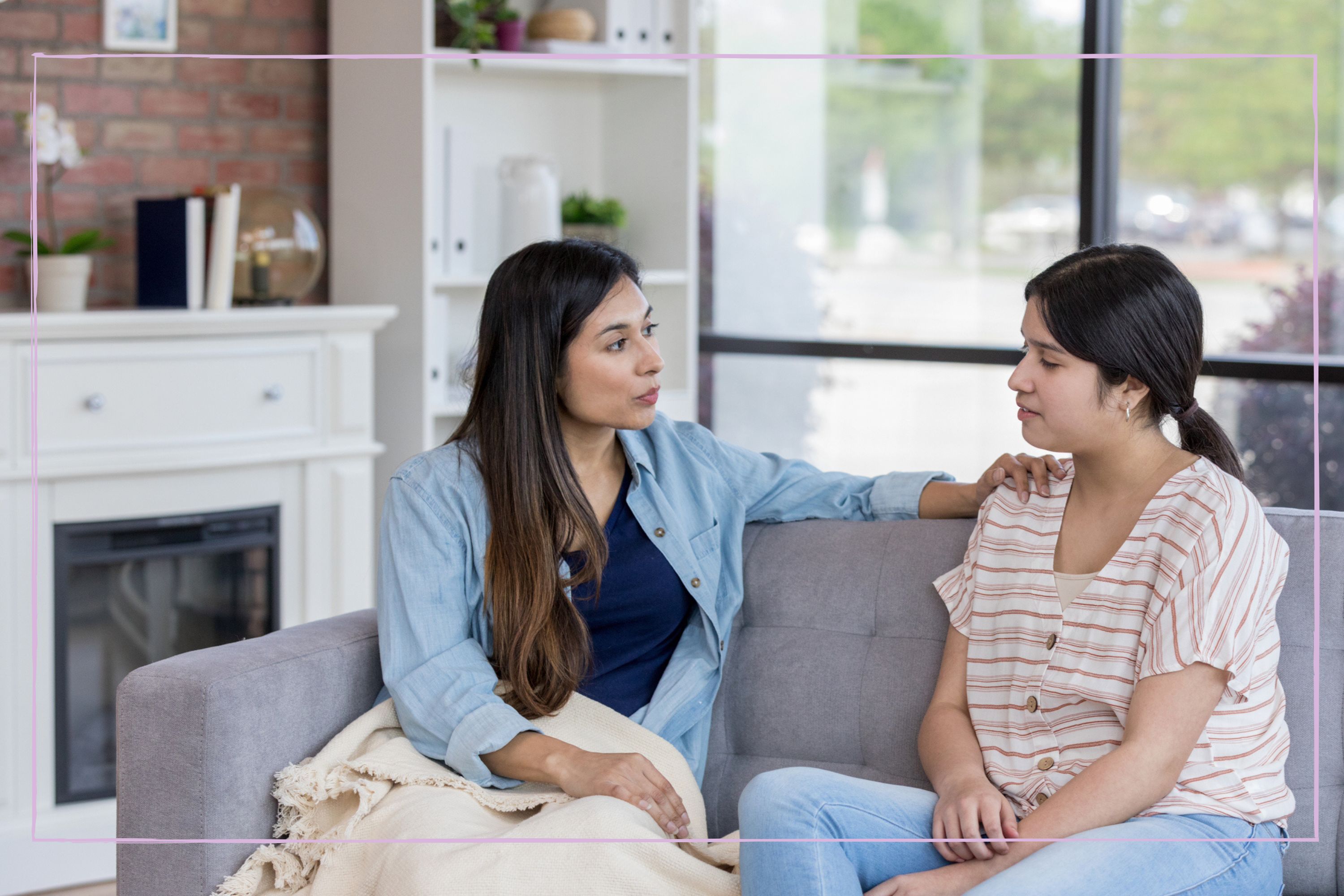Don’t fix it, just listen - survey reveals how teens really want their ‘intense emotions’ handled
Just being there for them can be enough


You're not alone if you struggle to comfort your teen when they're feeling difficult emotions - but a survey reveals simply just listening can be all they need.
Helping your teen navigate their teenage years can be tricky - many parents are left wondering how to talk to a teenager, especially if your teen is closed off and simply won't talk back. Reflective parenting is thought to help during the teen years, and could help you through this difficult time.
When it comes to handling their big emotions, it can really feel like you don't know the best way to offer comfort. However, according to a survey carried out by global research company Gallup and the Walton Family Foundation, the best way for parents to comfort anxious, sad or stressed teens is simply to let them vent while you listen.
Of those who took part, 62 per cent of teens say they want their parents to listen to them when they are upset, while 56 per cent would like to be given some space. Only 28 per cent suggest they want their parents to give them advice when they are upset.
Focussing on Generation Z youth aged between 10 - 18, the study found a lot of this generation already think they possess a 'deep arsenal' of coping techniques when they are having intense emotions. When it comes to what they need from their parents in that moment, they say listening is more important than giving advice and reassurance.
The study also tracked the emotional experiences of its respondents, finding their moods to be 'complicated and ever-shifting.' It was found they can experience varying degrees of happiness, stress, anxiety and sadness throughout the course of one day.
When parents of the tweens and teens were interviewed, 16 per cent say they struggle to comfort their children when they are upset, or to communicate effectively with them. It was found that specifically, parents of those aged 13-15 were most likely to report struggling to communicate with their child, with 19 per cent admitting to this.
GoodtoKnow Newsletter
Parenting advice, hot topics, best buys and family finance tips delivered straight to your inbox.
The slightly younger demographic, or tweens, have different preferences to the teens when it came to how they'd like to be supported through their difficulties. Teens are 20 per cent more likely than tweens to want their parents to give them space while tweens are around twice as likely as teens to want their parents to provide them with physical comfort.
The group under study gave 14 ways they like to soothe themselves when feeling emotional:
- Listening to music (58%)
- Playing video games (45%)
- Connecting with friends (45%)
- Talking about feelings (39%)
- Seeking comfort from a pet of hug from an adult (38%)
- Going on YouTube (31%)
- Going outside (31%)
- Being physically active (24%)
- Being creative (22%)
- Self-care (21%)
- Trying to solve the problem themselves (21%)
- Using social media (20%)
- Comfort eating (20%)
- Journaling (12%)
There are gender differences between these chosen ways to comfort themselves. Two thirds of boys would choose to play video games, which is around three times the rate for girls. Similarly, boys also are more likely than girls to engage in physical activity or spend time on YouTube.
Girls were found to gravitate towards listening to music, talking about their feelings, seeking physical comfort, connecting with friends, browsing social media, being creative, journaling and engaging in self-care when they are struggling with their emotions.
For more on this age group, there's teen myths that aren't true that we want to debunk. That said, parenting teens is said to be as difficult as raising a baby, and those raising them should be offered workplace support as their teens need them more than ever.

Lucy is a mum-of-two, multi-award nominated writer and blogger with six years’ of experience writing about parenting, family life, and TV. Lucy has contributed content to PopSugar and moms.com. In the last three years, she has transformed her passion for streaming countless hours of television into specialising in entertainment writing. There is now nothing she loves more than watching the best shows on television and sharing why you - and your kids - should watch them.